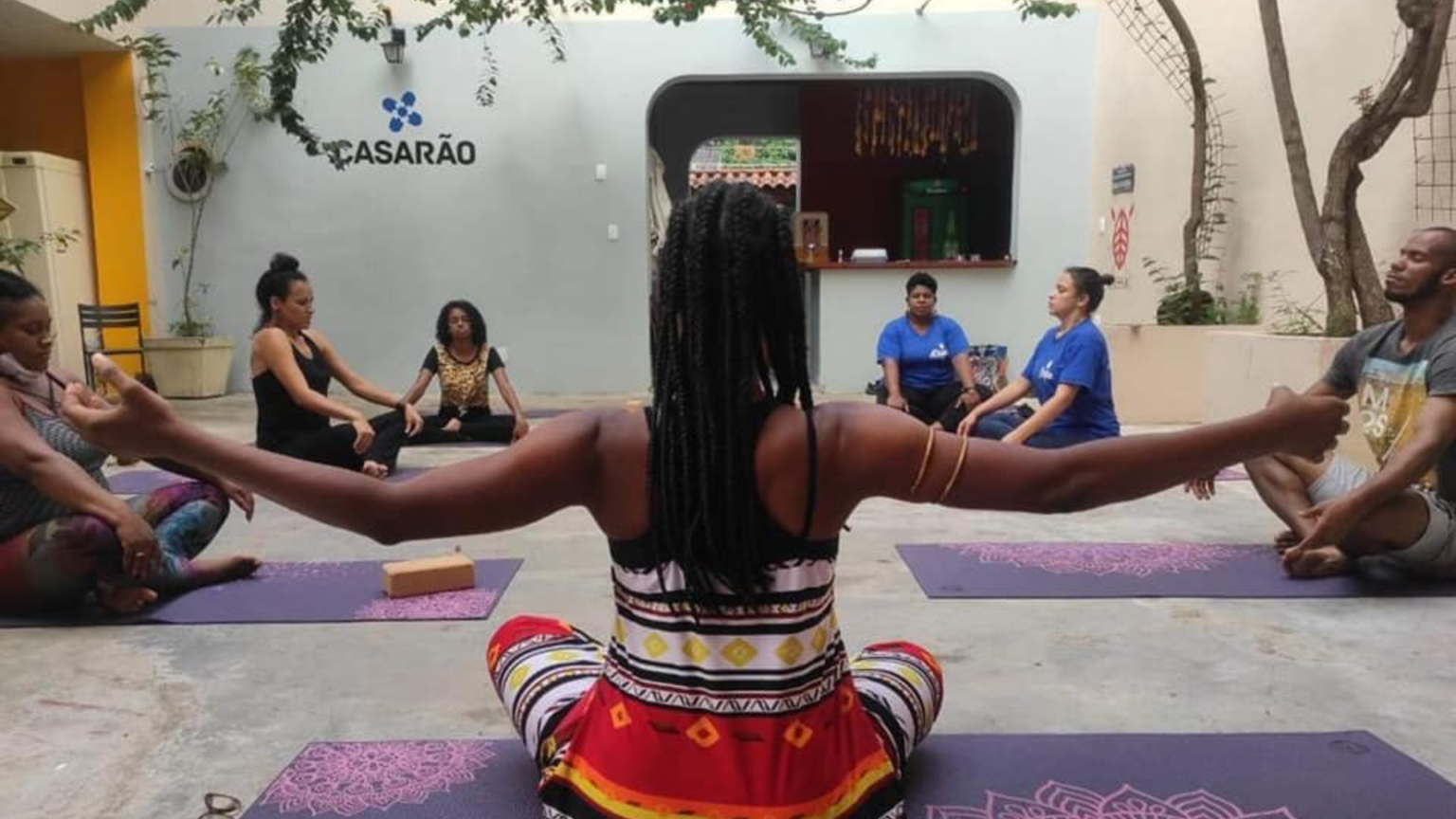
In the past, yoga has been viewed as a practice that only hippie-like, educated White people engaged in – something that was deemed taboo in the Black community. However, origins not only trace back to India, but this sacred practice has African roots. For centuries, Black people have faced marginalization, discrimination, and social injustice in the U.S. The unjustified deaths of George Floyd, Ahmaud Arbery, Breonna Taylor, and countless other Black lives have created a level of racial and social trauma that few other communities have experienced. In light of the physical, mental, financial, and social disparities that exist in the Black community, yoga has become a way to reset and refocus the mind into a space that is free from stressors that come with being Black in a predominantly White world. Even Rosa Parks began practicing yoga in the 1960s and continued for 30 years, but this little known fact was kept a secret because of how it was viewed during that period of time. Without ways to cope with daily struggles, perpetual trauma keeps the mind in a state of fight, flight, or freeze mode, and as a result, more recently Black Americans have turned to yoga as a way of healing. According to the research, consistent yoga and meditation increase activity in the parts of the brain that run self-regulation, the ability to process stress, and return us to homeostasis. It is a means to address imbalance or heal trauma experienced in life.
Yoga has become increasingly popular among Black Americans with the growth of Afrocentric yoga (i.e., focusing on Black or African culture), establishment of Black yoga organizations (i.e., Black Yoga Teachers Alliance), and expansion of social media presence of Black yoga practitioners. Afrocentric yoga becomes a way to seek out lost knowledge and to reclaim our personal and collective power. It seeks to connect to more of our rich and diverse Pan-African cultures, both ancestral and modern, through the intentional study of our Black legacies and African heritages. In yoga, healing is a communal experience, which is why it’s so important to integrate culture with practice.
Because yoga classes are typically in majority White spaces, as a Black person, just entering a majority White yoga class alone can be uncomfortable because of systemic trauma and individual experiences with discrimination. Fortunately, creating safety in these spaces is not impossible, it just requires education and effort. In order for yoga to be healing for the Black community, it’s imperative that the instructors leading yoga classes have an understanding of the challenges Black people face. Yoga heals the struggle from the inside out. It heals the struggles of the mind.
Black Yoga Studio Suggestions:
Radha Yoga
Dat Yoga Dude
Eb and Flow Yoga Studio

Author: admin
The Blk Coin Collective (BCC) is an online platform that helps people find, engage with, and connect with Black-owned businesses.